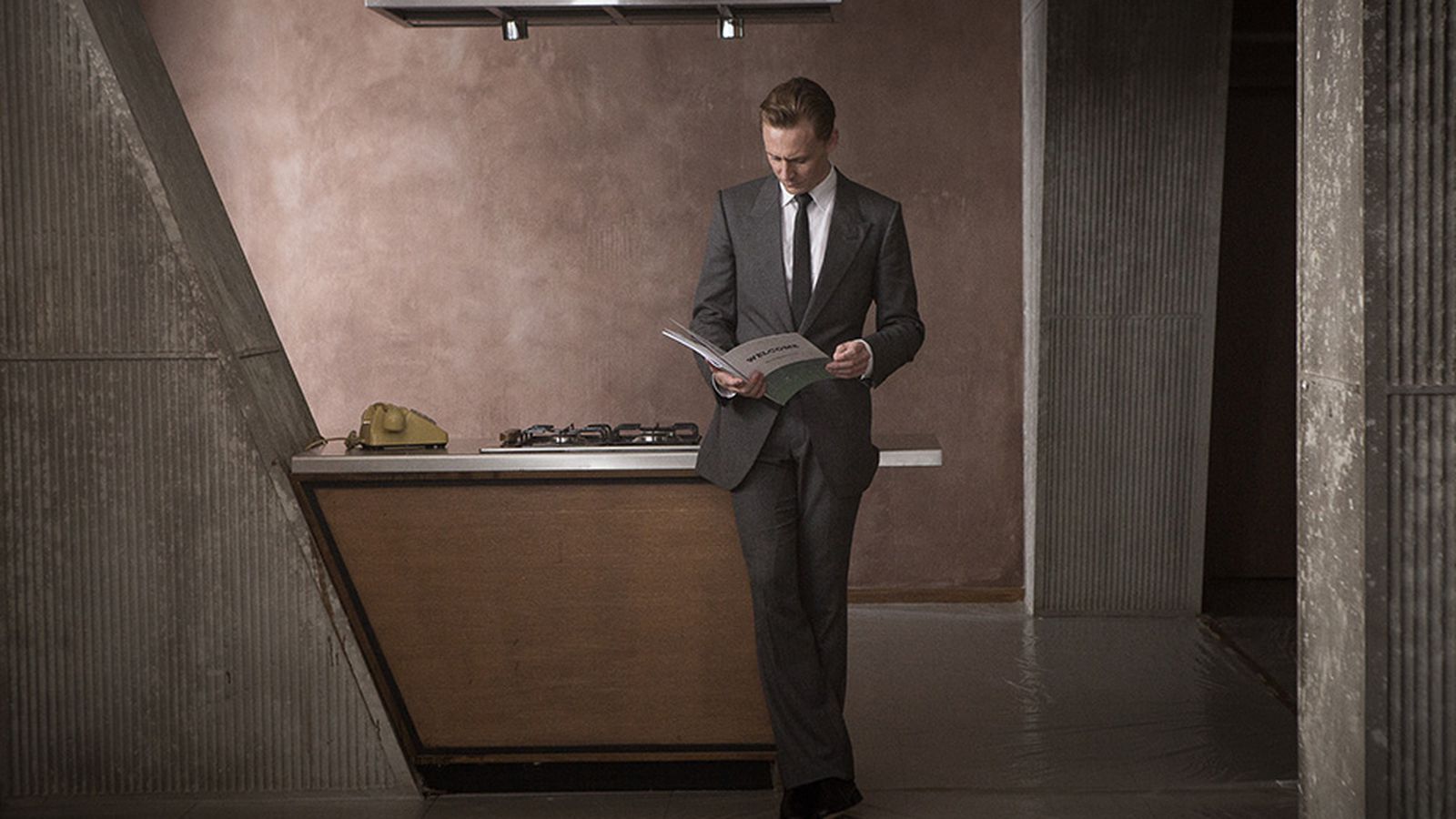
Wheatley and screenwriter/wife Amy Jump’s Ballard riff is unrulier than Crash, David Cronenberg’s take on Ballard’s other supposedly ‘unfilmable’ novel, also produced by Jeremy Thomas. But Wheatley and Jump pull off a similarly seamless author/filmmaker hybrid, honouring the novel while making it their own highly cinematic beast.
The result drew mixed festival reviews, but roll with its anarchic satirical punch and you’ve got rare meat: a Brit-film of singular vision, blackened wit and dog-toasting audacity, cooked with such brio that its flaws seem like acceptable casualties. As the dog cooks, we meet Tom Hiddleston’s Dr Robert Laing, a seemingly vacant neurologist reclining on a Brutalist tower-block balcony in mid-’70s London.
As placid as he seems, one of many clear mergers of the Ballard/Wheatley/Jump mindsets is established as the voiceover comments, “Now that so many residents were out of the way…” Hell is often other people in Wheatley/Jump’s films, from the singing Christians in Kill List to the fellow holidaymakers up for the chop in Sightseers. Here, the resentment is largely class-based, a point emphasised as we rewind three months and Dr Laing moves into the isolated tower’s 25th floor.

With his charm, looks, slippery personality and copious medicinal know-how as pass-keys, Laing floats between classes and floors. Just above him is Sienna Miller’s free spirit Charlotte Melville; down below, there’s arch-revolutionary documentary-maker Wilder (Luke Evans) and his class-strapped clan, pregnant wife Helen (Elisabeth Moss) and watchful son Toby (Louis Suc). Way up on top is the architect Anthony Royal (Jeremy Irons), who designed the tower as a “crucible for change”, a kind of “experiment”.
If Irons’ roles in Dead Ringers and M. Butterfly provide a roundabout link to Cronenberg, so does a med-school scene where the skin of a cadaver’s head is peeled away in a kind of metaphor for society’s thin surface.
The results of Royal’s experiment also recall the dabblings with sex parasites in Cronenberg’s tower-block ‘splatire’ Shivers, where orgiastic chaos bloomed. As power cuts and class-sparked clashes over swimming pools stoke rage in High-Rise, society’s lid blows and apocalyptic rioting erupts, with Che Guevara-loving Wilder its enthused advocate and Dr Laing our amoral eyes.
In Ballard’s spirit, Wheatley and Jump play out this scenario as a retro-futurist sci-fi allegory. Ballard was writing about the near-future in the mid-’70s: Wheatley and Jump smartly stick with a period they know well. The overflowing bin bags, broken bottles, nasty sideburns and swingers’ indulgences reek of late-’70s Britain, even before a familiar prime minister’s voice intones over the climax.
If that final nod is faintly on the nose, one or two performances also stumble. Whether it’s the effect of asking a large ensemble to evoke the chaos of a kids’ party ‘gone a bit Game of Thrones’ or not, a couple of comic turns overstate their grotesque case.

Yet the core cast are electric. Hiddleston is terrifically nonchalant (and quite a mover) in a role that links a Wheatley/Ballard theme: the psychosis behind British reserve. Miller makes bright work of Charlotte, Moss’ neglected wife is touching, the Oliver Reed-ish Evans is seedier than a ’70s ’tache and Irons oozes curdled aristocracy. And he gives good press-ups.
Wheatley and Jump’s flair for comic incongruity and deadpan dialogue is equally well pumped. Recalling the camping/killing collisions in Sightseers, weaponised tinned goods are deployed in an all-out supermarket civil war. A child scoffs cereal as he watches a man brutalise another over paint tins; as hell erupts, someone casually remarks, “There’s some very unhappy bunnies bouncing around.” That skewed sensibility extends to some fabulous surreal flourishes: horses and goats roam a top-floor garden paradise.
Even as the plot turns choppy, eye-watering marvels of artful detail keep its grip sharp. Mark Tildesley’s lavish production design ranges from mouldering fruit bowls to posh parties decadent enough to cause a French revolution. Indelible money shots include a kaleidoscope of death and a suicide plunge, while the music is practically an extra character. Clint Mansell’s deliciously jaunty, drunk-baroque score ingeniously offsets the darkness; equally startling is a lush ABBA cover by Bristol torch-noir titans Portishead.
As Portishead’s Beth Gibbons coos her ‘SOS’, the cry for help comes too late for the dog. But anyone who likes their cinema off-piste should ignore the sniffier reviews and give Wheatley’s call the chance it deserves: a good shot at some cult love.

No comments:
Post a Comment